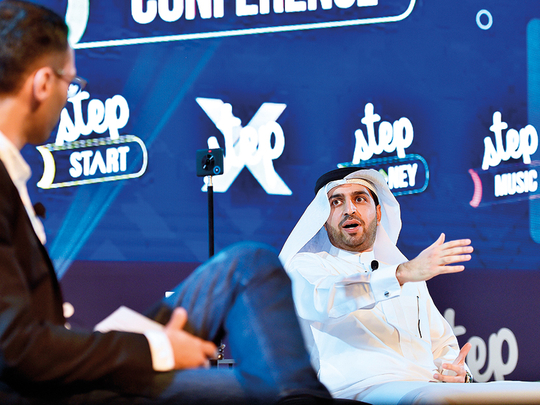
Dubai: Dubai Internet City, the city’s technology freezone, said on Wednesday that it had seen applications for its start-up programme boom since it introduced the in5 system back in 2013.
The initiative allows small firms to register in the technology park for Dh14,500 annually, providing entrepreneurs with a trade licence, four work visas, and shared office space.
A complaint often voiced by the UAE’s start-ups is the difficulty and cost of establishing a company. Many early-stage entrepreneurs, who have yet to generate any revenue, face red tape and fees running in to the tens of thousands of dirhams to establish themselves as a business entity in the UAE.
“We are trying to remove the red tape, remove the administration, and make it easier to start a technology company in Dubai,” said Ammar Al Malek, executive director of Dubai Internet City.
Of the 120 active start-ups incorporated in Dubai Internet City, 58 per cent have reported a 50 per cent year-on-year growth, according to the freezone, with more than 90 per cent of the firms claiming to have immediate expansion plans.
“We want start-ups to focus on what they do best — their business. We’ll help them with everything else,” Al Malek told Gulf News in an interview at the STEP Conference in Dubai.
At the end of 2017, the programme expanded to include in5 Media, and in5 Design, providing infrastructure such as recording studios, 3D printers, and professional cameras to start-ups.
Al Malek says that in recent years, he has seen the number of companies touting artificial intelligence (AI), e-commerce, big data, and cybersecurity solutions grow rapidly.
“We’re focusing on these ones because there’s synergies in them,” he said, adding that there were no plans currently to expand the initiative to any other industries following December’s inclusion of media and design.
On the rise of other freezones as technology hubs, including Dubai International Financial Centre’s (DIFC) FinTech Hive, and Abu Dhabi Global Market’s (ADGM) FinTech Innovation Centre, the senior official said that he does not view them as competition.
“Dubai Internet City is unique, and it has taken us 17 years to build this network, but all of Dubai is working together towards building a shared ecosystem,” Al Malek said.
Earlier this month, the freezone announced that members of the Dubai Internet City (DIC) community had collectively attracted Dh7.8 billion in funding since its inception as a business hub.
Over the last 12 months particularly, several DIC partners have attracted strong investments, officials said.
These include the acquisition of e-retailer Souq.com by US e-commerce giant Amazon for an undisclosed sum. The deal is estimated to have been in the region of Dh2.2 billion ($600 million).
Dubai-based ride-hailing app Careem became a unicorn, referring to a start-up valued at a billion dollars or more, in December 2016.








